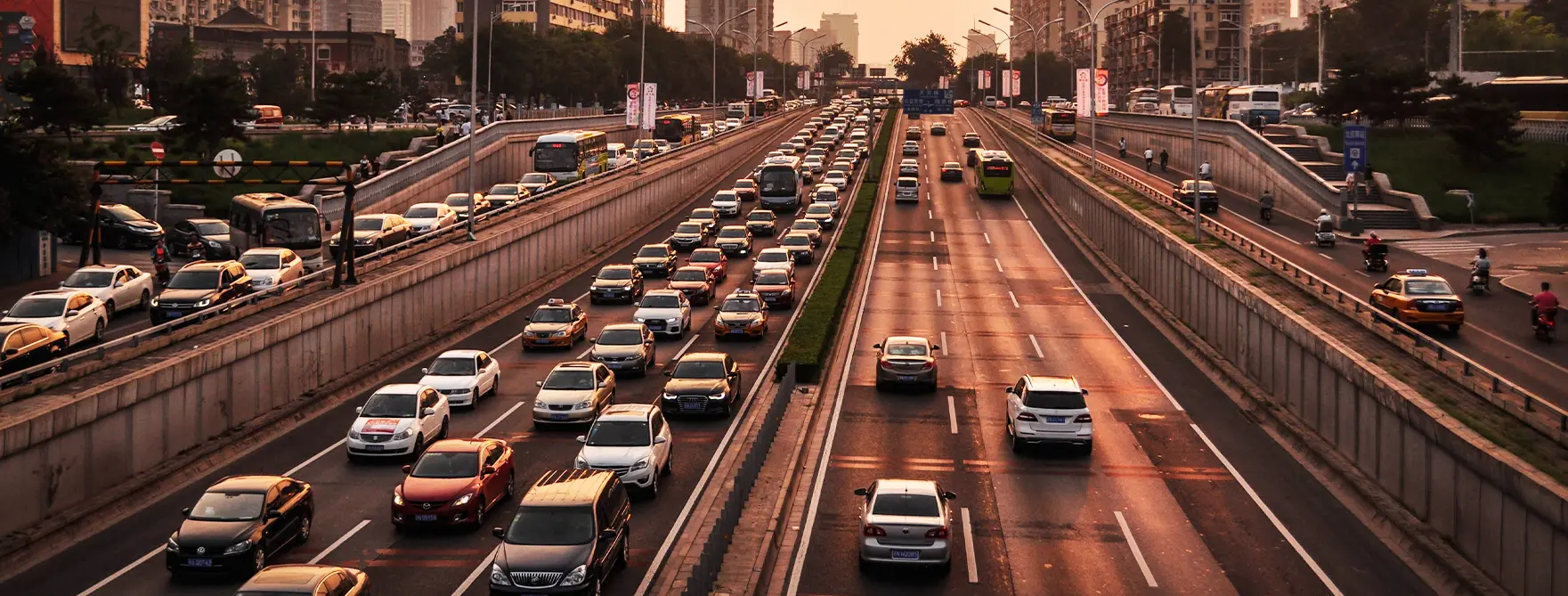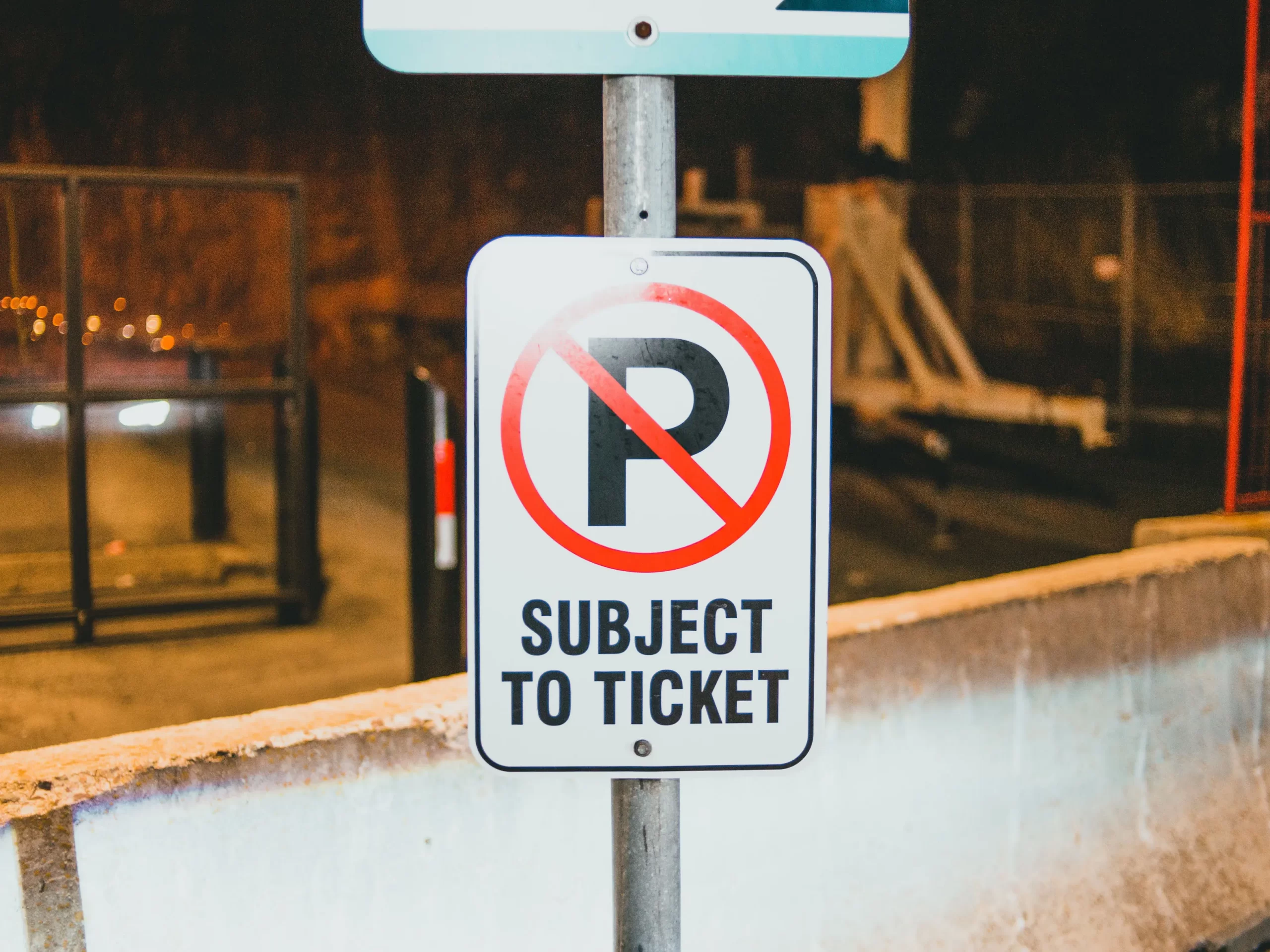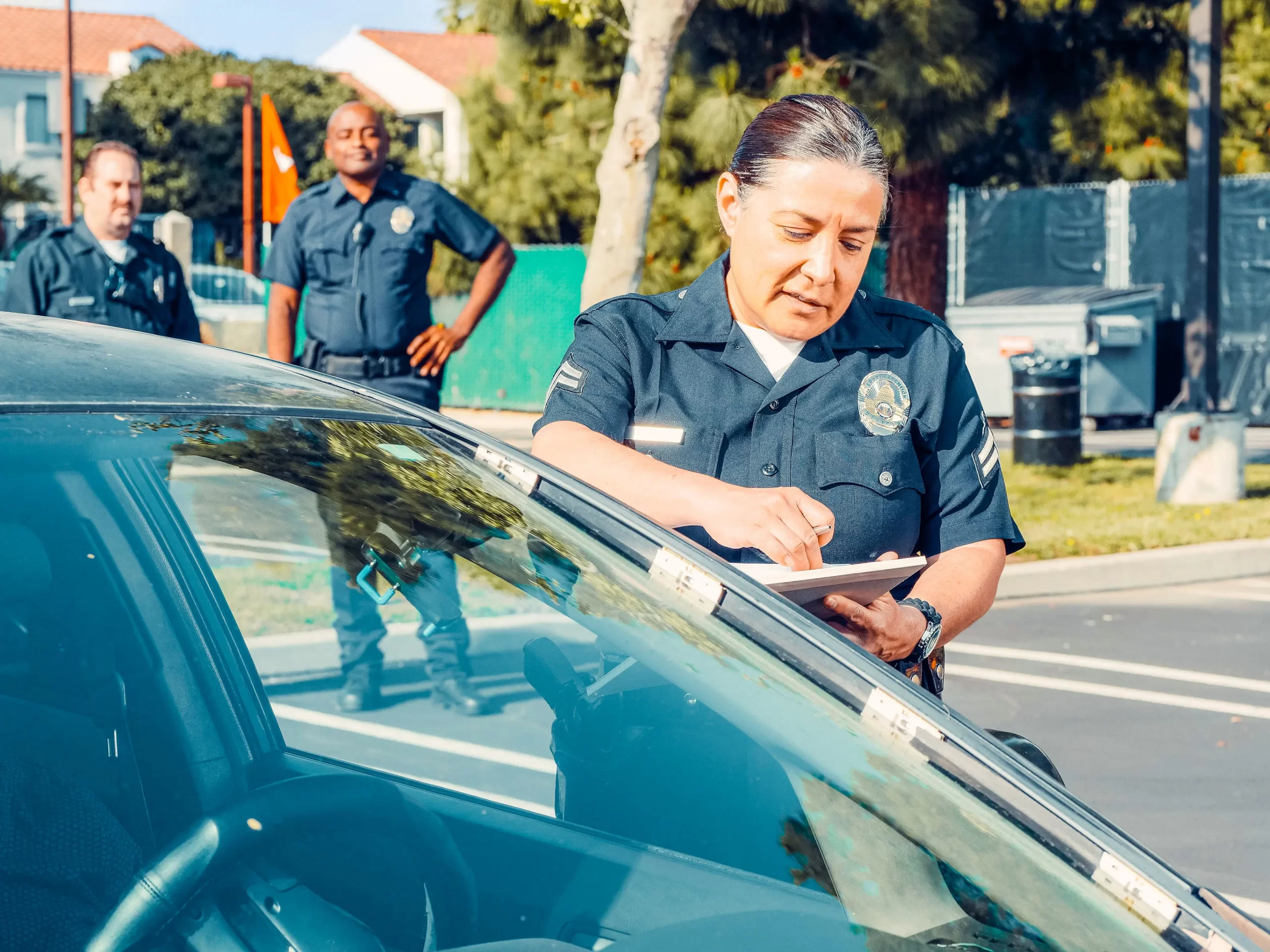
Defense for Traffic Violations in Pennsylvania
With more and more drivers on the road, more traffic violations are occurring each year. Some are more common than others, and they all carry different levels of consequences. If you have been issued a traffic ticket, call Cornerstone Law Firm. Our attorneys can negotiate on your behalf to reduce points, lower fines, and avoid license suspension.
Types of Traffic Violations
Some of the most common types of traffic violations are:
- Speeding
- Passing a stopped school bus
- Parking tickets
- Failing to stop at a stop sign
- Turning illegally
- Running red lights
- Driving while under the influence (DUI)
- Reckless driving
Strict-Liability
Most traffic tickets are considered strict-liability. This means that your intent or mental state are not taken into consideration when a conviction is made. It doesn’t matter if you meant to do what happened, or even if you knew what you were doing. Authorities only need to prove that you have committed the act they are accusing you of committing. Examples of strict-liability traffic violations include: driving at night with no headlights, driving with expired registration or inspection stickers, failing to yield, parking in a fire lane, or speeding.
Civil Violations vs. Criminal Violations
Traffic violations are often broken down into two categories: civil violations and criminal violations. Civil violations tend to apply to circumstances with less severe outcomes—times where there is no fatality or serious injury. Civil violations often result in points on your driver’s license, traffic tickets, community service, and/or driving school. Some examples of civil traffic violations are speeding, running a red light, or parking in a no-parking zone.
Criminal violations are the more severe type of traffic violation as they are the violations that end in injuries, death, or the risk of injury or death to another person. Criminal traffic violations come with more serious consequences like larger fines, license suspension, and imprisonment. Prosecuting authorities treat these cases very seriously, since frankly, dangerous driving can scare anyone. Not all traffic fatalities or serious injuries end in consequences like jail time, but they easily can. The risk is always there. If you have been in an accident involving death or serious injury, you need to start protecting your rights immediately. Another serious criminal traffic violation is leaving the scene of an accident. Some examples of criminal traffic violations are driving under the influence (DUI), hit-and-run accidents, and reckless driving.
Moving Violations vs. Non-Moving Violations
While traffic violations can be broken down into civil and criminal violations, they can also be broken down further into moving violations and non-moving violations. These are fairly self-explanatory. When your car is in motion, your traffic violation can be considered a moving violation. Moving violations, like criminal violations, tend to come with harsher consequences. They are thought to be more serious because operating a moving vehicle in an unsafe way can increase the risk of injury or death. If you are convicted of a moving traffic violation, it will remain on your driving record.
Examples of moving traffic violations include:
- Illegal U-turns
- Failing to yield at intersections
- Reckless driving
- Failure to signal a lane change
- Speeding
Non-moving traffic violations differ in that they typically occur when the vehicle is stationary. Non-moving violations typically fall into the civil violation category as they tend to be less serious.
Examples of non-moving traffic violations include:
- Driving with an expired license
- Outdated inspection stickers
- Parking in a closed area
- Parking in a handicap spot without proper tags
- Other parking infractions


The Point System in Pennsylvania
PennDOT has developed a point system for Pennsylvania drivers to both encourage safe driving habits and penalize driving violations. If you have accumulated 6 points or more, PennDOT will begin to take corrective action.
The first time you accumulate 6 or more points, you will be asked to take a special written exam issued by PennDOT. The second time, you will be asked to attend a Departmental hearing. Any accumulation of 6 or more points after that will result in further hearings and possible license suspension.
Three points will be removed for every 12 consecutive months that you drive without committing further violations. This does not apply in situations where you are already under suspension or revocation. Once you have reached 0 points and maintained 0 points for 12 consecutive months, any future points will be treated as the first accumulation of points.
Your driving privileges can be suspended or revoked if you:
- Drive a vehicle while under the influence (of drugs or alcohol)*
- Commit a felony or homicide involving a vehicle
- Drive recklessly
- Flee from the police
- Race on highways
- Drive with a suspended or revoked license
- Commit a hit-and-run
- And more
Following a suspension or revocation, your driving record will show 5 points regardless of the number of points previously on your record.
* Know that you can get a DUI for marijuana even if you are legally using it medicinally under Pennsylvania law. They expect medicinal marijuana users simply not to drive. With drugs, it doesn’t even matter if you are presently intoxicated. Drugs leave behind chemicals in the body called “metabolites.” Metabolites can stay in the body much longer than the time the impairment lasts. If you have any metabolite in your blood—even if that metabolite doesn’t actually impair you—you can be found guilty of a DUI.
Contact Cornerstone Law Firm to set up a consultation about your traffic ticket.
Do I have to plead guilty to a traffic violation?
If a traffic ticket has been issued to you, you have 10 days to file a not guilty plea. You may file this plea either in person at your local court, or you may file it online. After filing the plea, you will be scheduled for a hearing to determine whether or not you are guilty of committing the traffic violation(s) on the ticket. Attending the hearing with an experienced traffic attorney, like the ones at Cornerstone Law Firm, can help to improve the outcome of your hearing. If you are contesting a traffic ticket in court, give us a call today!
Where does the money from my traffic ticket go?
If you find yourself having to pay a traffic ticket, you may wonder where that money will ultimately go. In Pennsylvania, percentages of your traffic ticket fine will be divided up among the following places:
- The State Judicial Computer System Augmentation Account—This account supports the operation and development of case management systems across Pennsylvania, and is used by court staff, criminal justice staff, and law enforcement.
- The Access to Justice Account—This supports poor individuals by giving them access to legal representation for civil cases.
- The Emergency Medical Services Operating Fund—This funding helps to support things like ambulances, communication equipment, and EMS training and education. Some of this will also go to the Catastrophic Medical and Rehabilitation Fund, which supports victims of traumatic injuries and their families.
- States, Counties, Municipalities, and Law Enforcement Agencies—Portions of some fines will be divided up between the state, the county, the municipality, and the law enforcement agency. This is dependent upon the type of traffic violation and the location in which it occurred.
- Traffic Surcharges—Portions of traffic surcharges are divided between Pennsylvania’s General Fund, Public Transportation Trust Fund, and towing and storing agents in Philadelphia and Pittsburgh.

